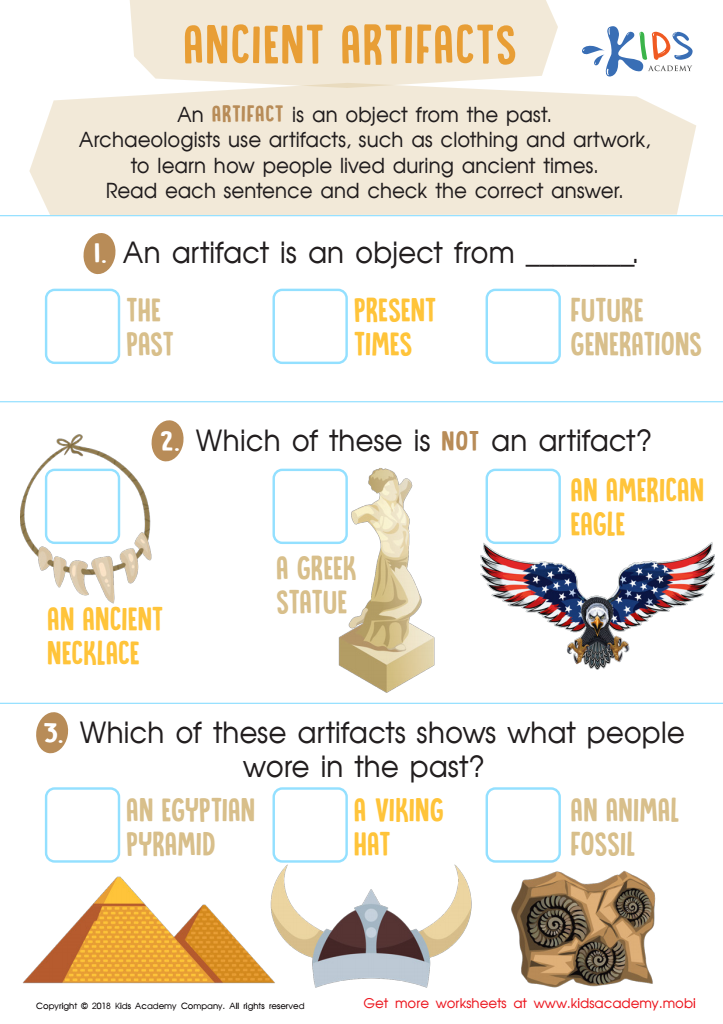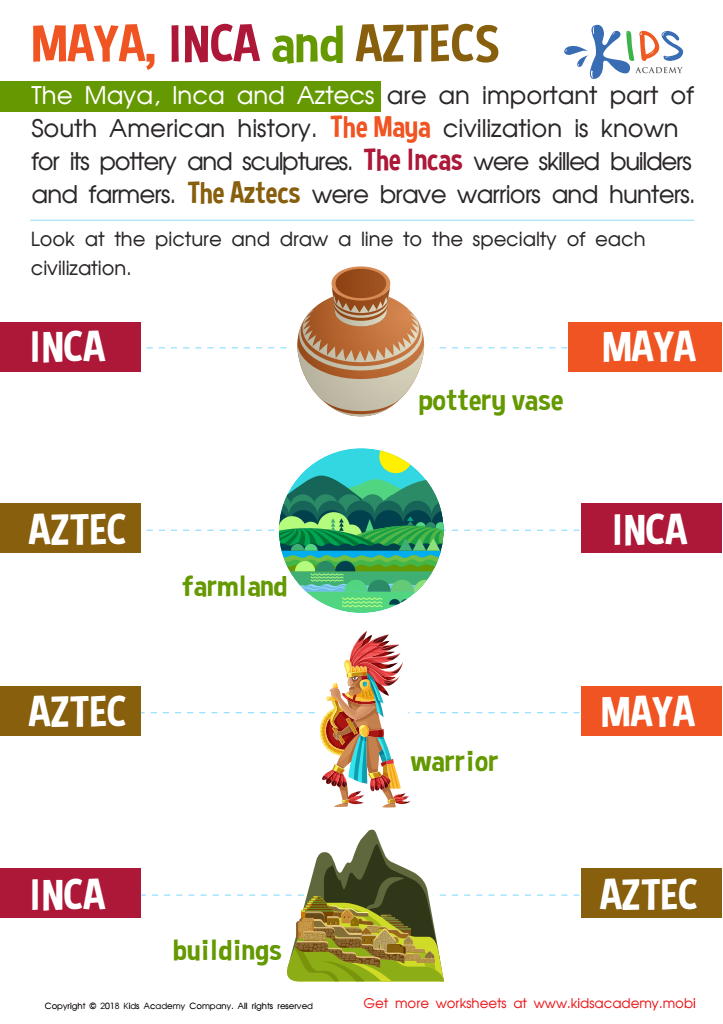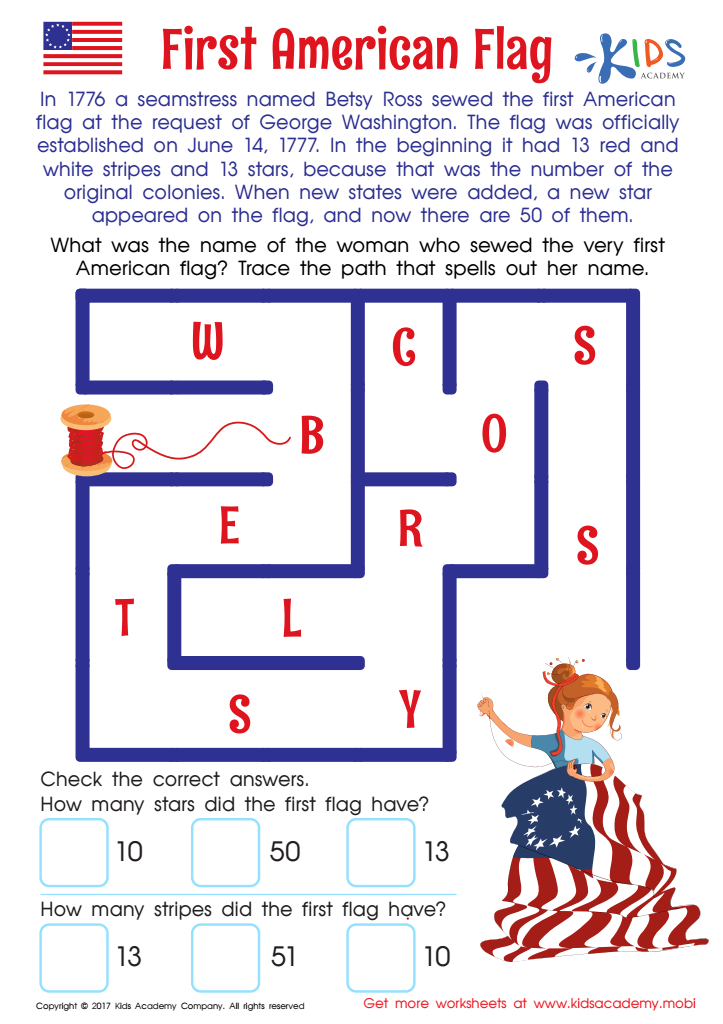Analytical thinking History Worksheets for Ages 6-8
3 filtered results
-
From - To
Discover our engaging Analytical Thinking History Worksheets designed specifically for children ages 6-8. These worksheets provide young learners with a fun and interactive way to develop critical thinking skills while exploring historical events and figures. Each activity encourages students to analyze information, make connections, and draw conclusions, fostering a deeper understanding of history. With vibrant illustrations and age-appropriate content, these worksheets make history accessible and exciting. Perfect for classroom use or home learning, our resources promote cognitive development and nurture a love for learning. Download now and empower your child to think critically about the past!


Ancient Artifacts Worksheet


Maya, Inca and Aztecs Worksheet


First American Flag Worksheet
Analytical thinking is a critical skill for children, especially for those aged 6-8, and it significantly enhances their understanding of history. Parents and teachers should care about fostering this capability because it encourages young learners to critically examine events, analyze multiple perspectives, and draw reasoned conclusions from the past.
When children develop analytical thinking skills in history, they learn to ask important questions, such as: What happened? Why did it happen? Who was affected? This deeper engagement allows them to connect historical events to their own lives, nurturing empathy and cultural awareness. Through analyzing historical contexts, children learn to understand cause-and-effect relationships, fostering problem-solving skills that extend beyond history into all areas of their education and lives.
Moreover, engaging students with historical inquiry helps foster a love for learning and encourages curiosity. Children who actively analyze history are more likely to develop into informed citizens who value their cultural heritage and understand the complexities of societal development. By prioritizing analytical thinking in history, parents and teachers equip children not only to navigate the past but also to synthesize information and make thoughtful decisions about their future, thus laying the groundwork for lifelong learning.

 Assign to My Students
Assign to My Students








.jpg)











